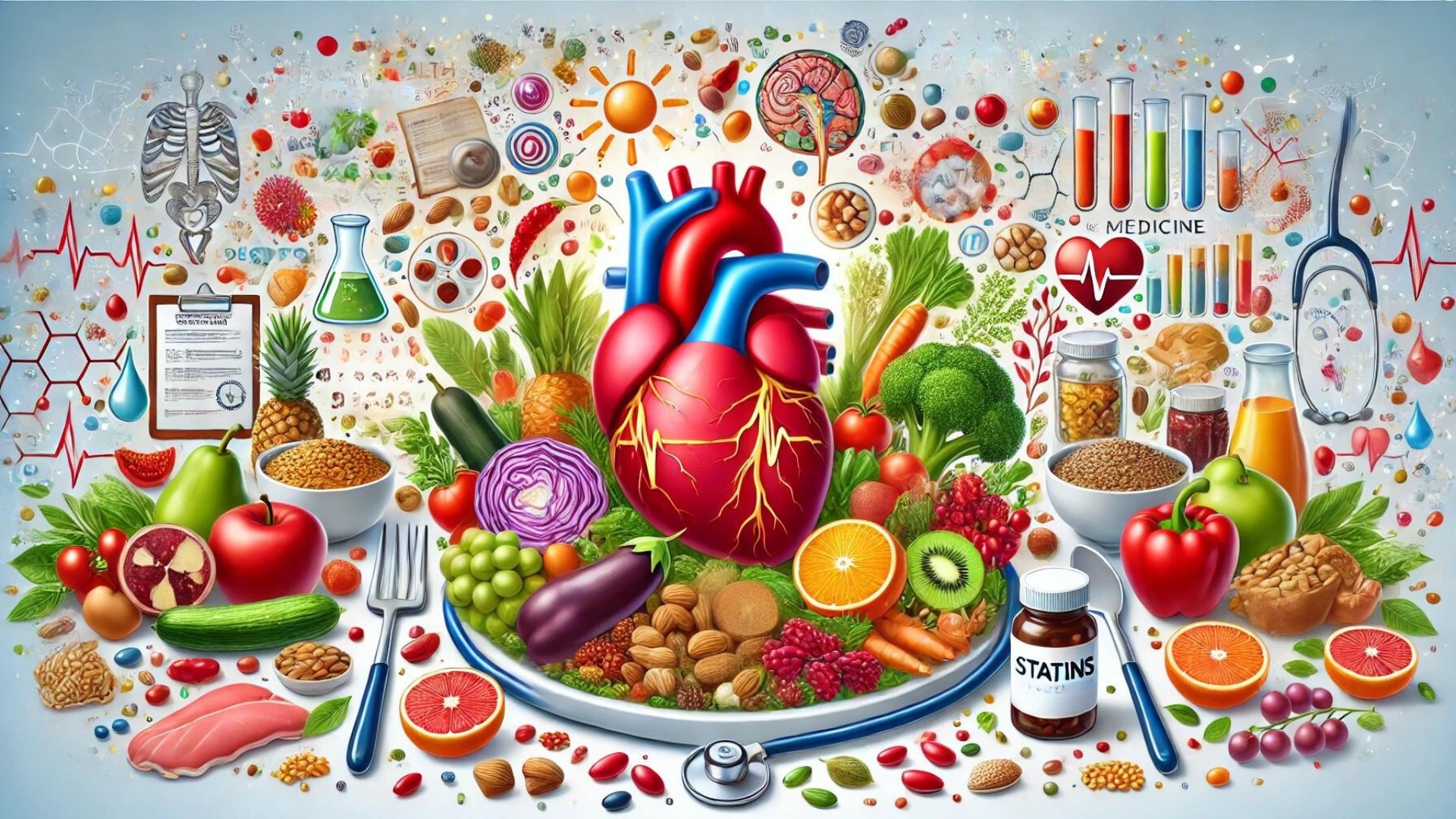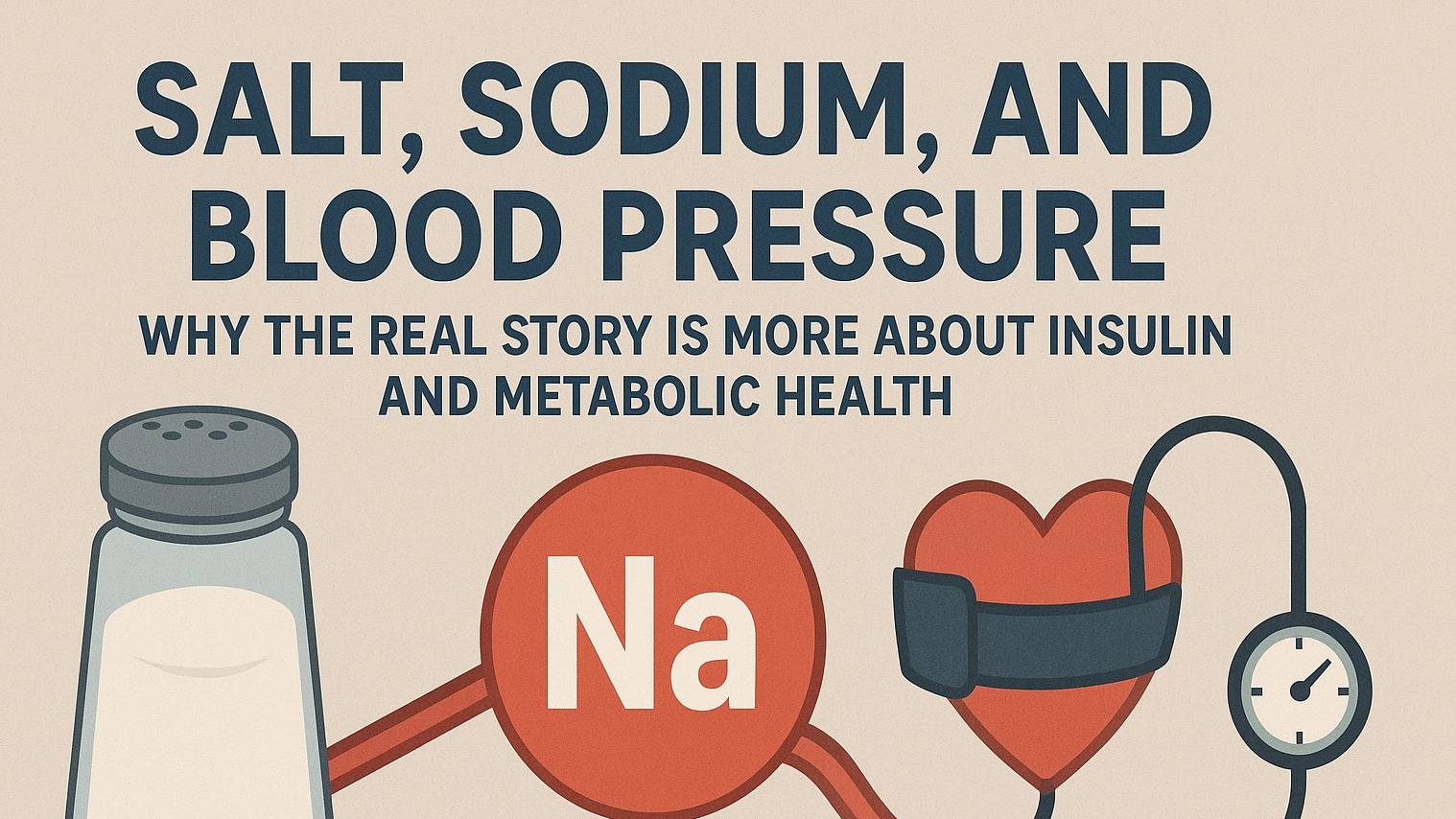
High cholesterol remains a significant risk factor for cardiovascular diseases (CVDs), including heart disease and stroke. With cardiovascular diseases being a leading cause of death globally, managing cholesterol levels is crucial. While statins and other medications are commonly prescribed, an increasing body of research highlights the powerful role that diet can play in managing cholesterol. Functional medicine, which emphasizes food as medicine, provides a comprehensive approach to cholesterol management by focusing on dietary interventions supported by scientific evidence. In this article, we’ll explore these interventions and the studies that validate their efficacy.
Understanding Cholesterol and Its Impact on Health
Cholesterol is a lipid molecule essential for various bodily functions, including hormone production, vitamin D synthesis, and the formation of bile acids for digestion. However, an imbalance, particularly elevated levels of low-density lipoprotein (LDL) cholesterol, can lead to atherosclerosis, where cholesterol deposits form plaques in the arteries, narrowing them and increasing the risk of heart attacks and strokes.
Functional Health Medicine and Dietary Management of Cholesterol
Functional Medicine views food as a central component of health and disease prevention. It advocates for dietary patterns that support the body's natural processes, including maintaining optimal cholesterol levels. Below, we delve into key dietary components and the scientific evidence supporting their role in managing cholesterol.
Soluble Fiber: The Cholesterol-Lowering Powerhouse
Scientific Evidence
Soluble fiber is known to reduce LDL cholesterol by binding to bile acids in the intestines. This binding prevents the reabsorption of cholesterol, which is then excreted from the body. A landmark study published in *The American Journal of Clinical Nutrition* demonstrated that a diet high in soluble fiber could reduce LDL cholesterol levels by 5-10% over a few weeks. The study involved participants who added 5-10 grams of soluble fiber from sources like vegetables, fruits and beans to their daily diet and observed significant reductions in LDL cholesterol levels.
Practical Application
To achieve these benefits, aim to consume 25-30 grams of total fiber daily, with at least 5-10 grams coming from soluble fiber sources like buckwheat, lentils, cruciferous vegetables, and whole fruits such as berries and apples.
Plant Sterols and Stanols: Natural Cholesterol Blockers
Scientific Evidence
Practical Application
Incorporate foods enriched with plant sterols and stanols into your diet, such as spinach, broccoli, brussels sprouts, kale, asparagus, plain unsweetened yogurts. Natural sources include nuts, seeds, and avocado and berries.
Omega-3 Fatty Acids: The Heart-Healthy Fat
Scientific Evidence
Omega-3 fatty acids, particularly eicosapentaenoic acid (EPA) and docosahexaenoic acid (DHA), found in fatty fish, have been extensively studied for their cardiovascular benefits. A systematic review and meta-analysis published in *JAMA* found that omega-3 supplementation led to a significant reduction in triglycerides and a modest increase in HDL cholesterol, which is beneficial for cardiovascular health. Additionally, the *New England Journal of Medicine* published a study where participants consuming omega-3-rich diets had a lower incidence of cardiovascular events, suggesting a protective effect against heart disease.
Practical Application
Consume fatty fish such as salmon, mackerel, sardines, and herring at least twice a week. For those who prefer plant-based sources, flaxseeds, chia seeds, and walnuts are excellent alternatives, though they provide alpha-linolenic acid (ALA), a precursor to EPA and DHA.
Nuts and Seeds: Nutrient-Dense Cholesterol Fighters
Scientific Evidence
Nuts and seeds are rich in unsaturated fats, fiber, and plant sterols, making them effective in lowering LDL cholesterol. A meta-analysis published in the *Archives of Internal Medicine* reviewed 25 studies involving over 500 participants and found that regular nut consumption reduced LDL cholesterol by an average of 10.2 mg/dL, with an overall reduction in total cholesterol of 5%.
Practical Application
Incorporate a variety of nuts and seeds into your diet, such as almonds, walnuts, sunflower seeds, flaxseeds, and chia seeds. Consuming a handful (about 1 ounce) daily can provide the necessary nutrients while helping to manage cholesterol levels.
Olive Oil: The Mediterranean Diet’s Secret Weapon
Scientific Evidence
Olive oil, particularly extra virgin olive oil, is a cornerstone of the Mediterranean diet, which has been associated with lower rates of cardiovascular disease. The *PREDIMED study*, a large-scale randomized trial published in the *New England Journal of Medicine*, found that participants on a Mediterranean diet supplemented with extra virgin olive oil had a 30% reduction in major cardiovascular events compared to those on a low-fat diet. The polyphenols and monounsaturated fats in olive oil are credited with reducing LDL cholesterol and improving overall heart health.
Practical Application
Use extra virgin olive oil as your primary cooking oil and for salad dressings. Aim to consume at least 2-4 tablespoons daily to gain the full cardiovascular benefits.
Probiotics: Gut Health Meets Cholesterol Control
Scientific Evidence
Emerging research suggests that gut health plays a significant role in cholesterol metabolism. Probiotics, particularly strains of *Lactobacillus* have been shown to help reduce cholesterol levels. A meta-analysis published in the *Journal of Dairy Science* reviewed 13 randomized controlled trials and found that probiotic consumption led to a reduction in LDL cholesterol by 7.8 mg/dL and total cholesterol by 9.1 mg/dL.
Practical Application
Incorporate probiotic-rich foods into your diet, such as yogurt, kefir, sauerkraut, kimchi, and other fermented foods. Regular consumption can help maintain a healthy gut microbiota, which in turn can support cholesterol management.
Foods to Avoid: Dietary Cholesterol Do's and Don'ts
While incorporating cholesterol-lowering foods is essential, avoiding certain foods is equally critical in managing cholesterol levels effectively.
Trans Fats: The Hidden Danger
Scientific Evidence
Trans fats, often found in processed foods, baked goods, artificial coffee creamers, and margarine, have been shown to significantly increase LDL cholesterol while lowering HDL cholesterol, thereby increasing the risk of heart disease. A comprehensive study published in *The New England Journal of Medicine* established a strong link between trans fat consumption and a higher risk of coronary heart disease, leading to global recommendations to reduce or eliminate trans fats from the diet.
Practical Application
Avoid foods containing partially hydrogenated oils, often listed as trans fats on labels. Focus on whole, unprocessed foods to minimize trans fat intake.
Saturated Fats: Moderation is Key
Scientific Evidence
The role of saturated fats in heart disease has been debated, but recent studies suggest that while not as harmful as trans fats, excessive saturated fat intake can still raise LDL cholesterol levels while also consuming processed foods. A study published in *The Lancet* highlighted the importance of not just reducing saturated fats but replacing them with unsaturated fats to reduce cardiovascular risk. Eat healthy fats like avocado, extra virgin olive oil, coconut oil, nuts and seeds. Healthy saturated fats are important for our brain, and joints, when eating a whole plant and protein food diet.
Practical Application
Limit the intake of high-fat dairy products, fatty cuts of meat, and seed oils like canola, vegetable and peanut oil. Replace some saturated fats with healthy sources like olive oil, nuts, and fatty fish like mackerel, sardines, anchovies and wild caught salmon.
Conclusion: The Power of Food in Cholesterol Management
Managing high cholesterol effectively requires a comprehensive approach that goes beyond medication. Functional health medicine emphasizes the use of food as medicine, and the scientific evidence supports this approach. By integrating cholesterol-lowering foods like those rich in soluble fiber, plant sterols, omega-3 fatty acids, and probiotics, and by avoiding harmful trans and limiting saturated fats, you can naturally manage your cholesterol levels.
Always consult with a functional medicine coach or practitioner to develop a personalized dietary plan that meets your specific needs. With the right dietary strategies, managing high cholesterol becomes a manageable, and even enjoyable, journey toward better health.
This article is grounded in scientific research and functional medicine principles, offering readers a guide to managing high cholesterol through dietary interventions. By following these guidelines, individuals can make informed choices that support cardiovascular health and overall well-being.
106 Views
0 Comments
 Add Row
Add Row  Add
Add 










Write A Comment